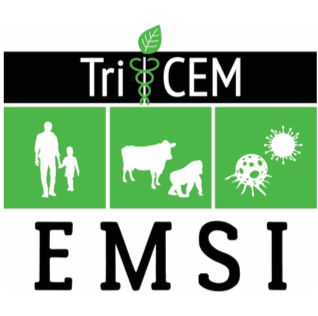TriCEM hosted the fourth Evolutionary Medicine Summer Institute (EMSI) at North Carolina State University during the week of May 15-20, 2022. Evolution is largely absent from medical, veterinary, and public health training, yet it is vital to tackling our most urgent health challenges, including emerging infectious diseases, microbial resistance, food safety, and cancer and other non-communicable diseases. EMSI aims to bridge that gap by (a) introducing core evolutionary perspectives to a wide range of topics in human and animal health and disease, (b) training scientists in computational methods used in evolutionary and ecological research, and (c) fostering new collaborations across the evolutionary sciences, human and veterinary medicine, and public health.
EMSI brought together internationally recognized experts in evolutionary biology with scientists and health practitioners interested in applying evolutionary perspectives to their research and practice. Twenty-six experts from across North Carolina and two externally invited speakers led sessions. Highlights included Randy Nesse of Arizona State University leading a discussion on mental health and evolution, Stephen Stearns of Yale discussing life history theory, and a dynamic health disparities panel discussion featuring Fatimah Jackson of Howard University, Clayton Yates of Tuskegee University, and Andrea Deyrup of Duke. Through lectures, hands-on computational exercises, and team-based learning projects, participants gained the background and tools to apply evolutionary biology to questions of medical and veterinary importance. Participants included 25 students, postdoctoral scholars, and faculty from local, domestic, and international institutions, with backgrounds in public health, veterinary medicine, human medicine, and basic sciences. By including participants from diverse backgrounds and with varied professional goals, EMSI’s model of hands-on participatory learning and networking provided attendees with tools to better communicate between the evolutionary sciences and medicine, two frequently siloed fields. These skills are critical for the future of evolutionary medicine, an inherently interdisciplinary field that relies on novel collaborations.

Currently in its fourth year, EMSI has become an annual event for TriCEM, creating a vital resource for scientists and professionals interested in evolutionary medicine and computational research approaches within the filed, while also strengthening our local community of scientists and medical practitioners across the TriCEM-affiliated institutions (Duke University, North Carolina A&T State University, North Carolina Central University, North Carolina State University, and University of North Carolina at Chapel Hill).
